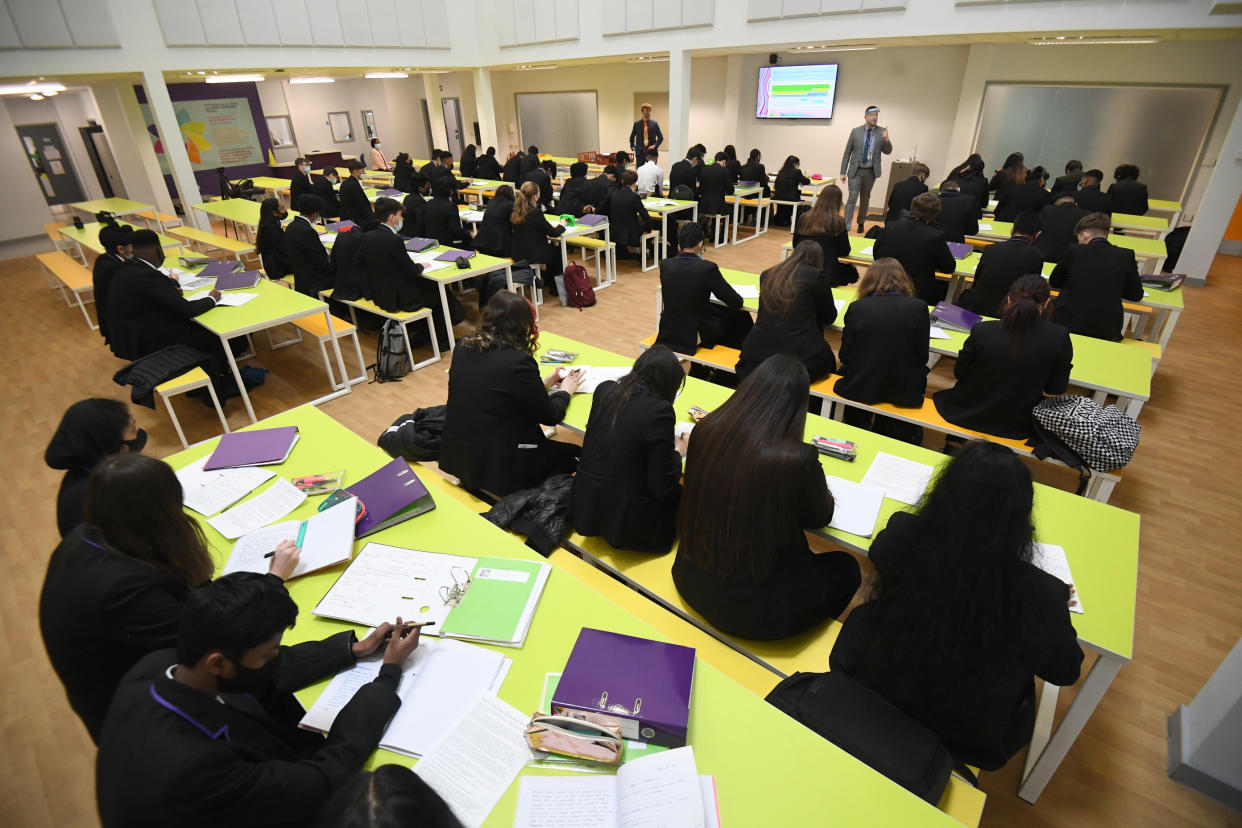'Unacceptable': Vaccine rollout fears as Covid infections rise exponentially in children

Coronavirus cases rose exponentially among five to 17-year-olds in September following the return to schools, according to new research.
The React-1 study, conducted by Imperial College London and Ipsos Mori between September 9 and September 27, showed that the infection rate is growing among the under-18s, and falling among those aged 18 to 54.
But despite that, relatively few schoolchildren aged five to 17 have been vaccinated in the UK, though single doses are now being offered to those aged 12 years and over.
The research comes amid warnings that vaccinations among children and young people are still too low.
Dr Zubaida Haque, a member of Independent Sage, tweeted: "It has been *1 month* since Prof Chris Whitty, CMO, said that children aged 12-15 in Britain should get a first dose of #Pfizer-BioNTech vaccine (over-riding JCVI's controversial decision to not recommend it), yet ONLY 12% of 12-15yos in England have been vaccinated. Why??"
Read more: Driver charged with death of pedestrian he ‘knocked down’ after he died from COVID in hospital
She added: "Between Jan-April, we were vaccinating ~1million adults per week (much higher later on), but we appear to be significantly behind with teenagers.
"In Scotland, they have vaxxed ~40% of teenagers already. The current rate of infections among teenagers in England is unacceptable."
This is depressing.
At a time when we’re should be trying to accelerate coverage of 12-15 year olds we are actually slowing down. https://t.co/y9TV1Mi2fz— Kit Yates (@Kit_Yates_Maths) October 13, 2021
Kit Yates, Mathematical Biologist at the University of Bath, shared a graph showing that vaccination rates of young people had slowed down, writing: "This is depressing. At a time when we’re should be trying to accelerate coverage of 12-15 year olds we are actually slowing down."
Earlier this week, ministers urged parents to get their children vaccinated against COVID-19 amid concerns about the vaccination programme in secondary schools.
It came after the latest Office for National Statistics (ONS) figures showed that around one in 15 children in school years seven to 11 in England are estimated to have had coronavirus in the week to October 2.
Provisional data from the Government’s coronavirus dashboard suggests that 11.7% of 12- to 15-year-olds in England have been vaccinated as of October 10, compared to 38.9% of 12- to 15-year-olds in Scotland.
Researchers say it is important the vaccination programme maintains high coverage and reaches children and unvaccinated, or partially vaccinated adults, to reduce transmission and associated disruptions to work and education.
Watch: COVID-19 cases surge among children after schools reopen
Professor Paul Elliott, director of the React programme from Imperial’s School of Public Health, said: “Our latest data show that infections are high and rising in school-aged children.
“Households with children also had a higher prevalence of infection, suggesting that children may be passing on the virus to those that they live with.
“These trends reinforce how important it is for children aged 12 and above to get vaccinated and help curb the spread of infection, and minimise disruption to education.”
Concerns have also been raised over the risks of Long COVID in young people, with a study published in the British Medical Journal (BMJ) in September finding that as many as one in seven (14%) may still have symptoms 15 weeks later.
The React-1 study, which involved more than 100,000 volunteers, also supports the need for vaccine boosters, with a higher prevalence of double jabbed people testing positive within three to six months of their vaccination.
Dr Jenny Harries, chief executive of the UK Health Security Agency, said: “These data demonstrate that while our vaccination programme continues to make a huge difference, the pandemic is not over.
“As we move towards winter, it is as important as ever that we continue to act responsibly in order to avoid transmission.”
Watch: Could astrologers have predicted the pandemic?



